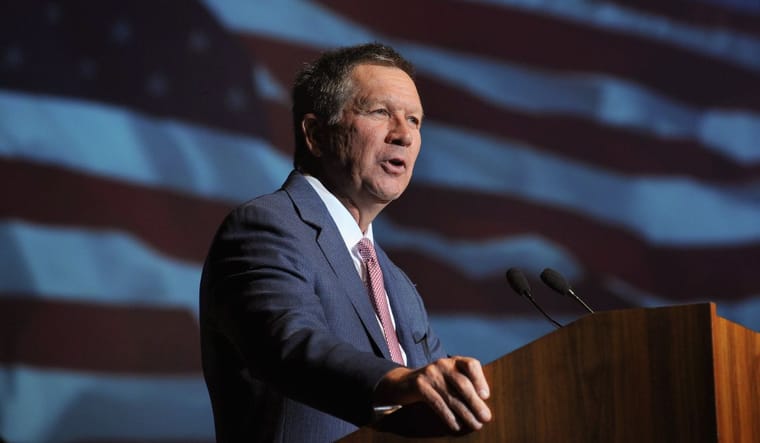I'm Fully Vaccinated for COVID-19 and My Wife Isn't. Here's How We Make It Work
By Douglas Noll, as told to Meghan Rabbitt
When I tell people that I am fully vaccinated and my wife, Aleya, is not, almost everyone looks at me with shock and awe. They wonder how it's possible that we could make such different choices and not let it impact our relationship. They ask if it leads to knock-down, drag-out fights.
And they don't believe me when I tell them that those scenarios couldn't be farther from the truth.I know this debate is causing so much strife among so many, driving wedges through families and friendships and prompting a lot of angst in the process. But I can also tell you…both through my personal experience as well as my expertise as a professional mediator with decades of experience managing and resolving conflicts of all types…that it doesn't have to be that way. It is possible to feel drastically different from someone you love about a heated topic and talk about it with love and respect. Here's how.
Step No. 1: Both parties need to take responsibility for their choices.
My wife is different than many anti-vaxxers. Aleya and I both believe that with democracy and freedom comes great responsibility, which means that if you're not going to get vaccinated, you have to isolate. It is morally irresponsible to not get vaccinated and then be out in society. Thankfully, we live on 10 acres in the Sierra Nevada mountains of California and Aleya is able to self-isolate.
Because she has taken personal responsibility for her choice and isn't putting others or herself in harm's way, our different decisions on this topic feel workable. Let's say you're vaccinated and someone you love isn't, and that person takes a selfish approach puts his or her own health and the health of others at risk…well, that's not OK. If someone isn't willing to understand their choices have consequences, you might not be able to be in relationship with that person.
Step No. 2: Learn how to listen like a professional mediator.
When Aleya and I have conversations around difficult topics, we take turns asking each other two questions.The first question is: Do you have time to talk to me right now? Bringing up a difficult topic or one that might feel charged is important to time right; both people have to feel like they have the time and willingness to have the conversation.
The second question is: Can you step into the Buddha bubble? The Buddha bubble is the ultimate listening space, where you step into an imaginary bubble and act like the Buddha, listening with compassion and not responding with a rebuttal or emotionally invalidating the person speaking. Another key when you're in the Buddha bubble is reflective listening, with the goal of really taking onboard what the other person is saying and reflecting what you heard back to him or her.
That's not to say you're not allowed to disagree with where someone is coming from or have concerns about their choice. For example, Aleya is immunocompromised, which means we're both concerned about what the outcome might be if she gets sick. But taking turns in the Buddha bubble gives both of us a chance to express our thoughts and work through our fears. In our case, we had multiple discussions and landed in a place where we felt OK about making our own, different decisions.
Step No. 3: Remember that most people just want to be heard.
What I know for sure is that when someone is passionate about something and has a strong belief about an issue, under that passion and conviction is a deep need to be heard. So, can you hear someone out…even if where they're coming from is completely different than your own standpoint…with a genuine interest in understanding their viewpoint? I can't tell you how many times I've watched conversations turn from being futile to productive simply when each side feels heard. This can be especially hard when someone is so tied up in their beliefs that it starts to become a part of their identity. If that's the case, another person challenging those beliefs will feel like an existential threat…and the reaction will often be anger. If you suspect this is what's happening in an interaction, it's even more important to step in the Buddha bubble and listen with an open heart and mind.
Ask questions that'll help you understand the life experiences that led this person to what he or she believes. If you really listen, I'm willing to bet you'll learn a lot from the stories you hear and find that you have far more in common than not. You may not agree, but the polarization will go away.
At the end of the day, I think it's possible to respect and honor someone's decision or belief…even if it's completely opposed to your own…as long as that decision or set of beliefs doesn't hurt you or others. I truly believe we can listen each other into existence. All any of us truly want is to be heard.
Doug Noll was a commercial and business trial lawyer for 22 years before he realized there were better ways to resolve conflict than through litigation. So, he went back to school, earned his Master's degree in Peacemaking and Conflict Studies, and left law practice in 2000 to become a student of human conflict, a mediator, the author of four books, and a teacher. He is the co-founder of the Prison of Peace Project, where he trains prisoners to be peacemakers. Learn more at dougnoll.com.
Please note that we may receive affiliate commissions from the sales of linked products.



